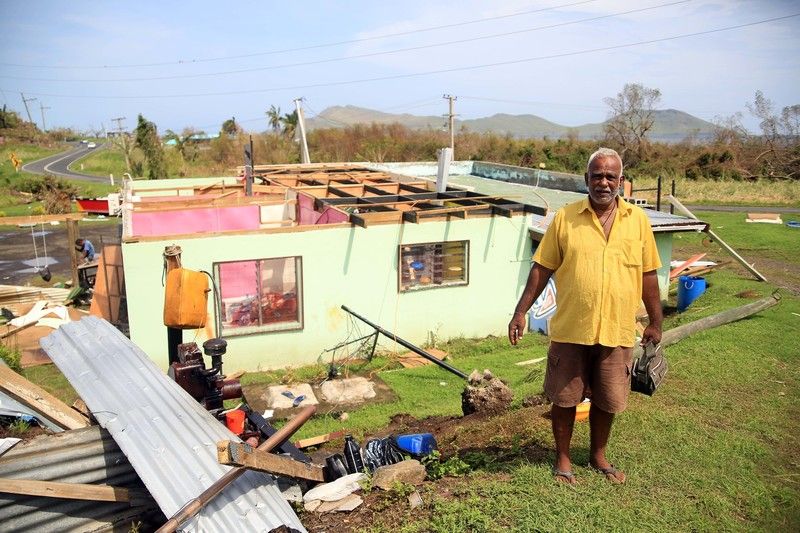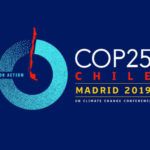
During the COP25, Stop Climate Chaos Scotland will be hosting blogs from our members at the UN Talks about the key issues.
In this first blog, Jamie Livingstone, Head of Oxfam Scotland, and SCCS Board Member explains why mitigation and adaptation are not enough, and why we must take the concept of loss and damage seriously.
The climate emergency is wreaking havoc across the globe and the poorest communities who have done so little to fuel it are paying the heaviest price. This painful paradox lies at the heart of the principle of ‘climate justice’.
On the one hand, the poorest half of the world’s population – 3.5 billion people – are responsible for just 10 percent of carbon emissions (the richest 10 percent produce around half of global emissions). On the other, they suffer the most and do so with inadequate help from those who caused this crisis.
Take Africa. It contributes less than five percent of total global emissions but is suffering the greatest impacts. In the Horn of Africa, a series of intense droughts have repeatedly wiped out people’s crops and livestock. Further south, Cyclone Idai alone killed more than 1,000 people across Zimbabwe, Malawi and Mozambique.
Much of the focus at the annual global climate talks – known as COP – has been, and remains, on the speed and depth of action to reduce current and future emissions – so called ‘mitigation’. That task alone is huge. According to the UN Environment Programme, because of delayed action to date, countries now need to increase their carbon-cutting ambitions five-fold to avoid climate heating of more than 1.5C by 2030.
But mitigation is only one side of the climate justice coin.
The other is rich countries’ existing and growing climate debt to poorer countries – a debt which will take more than deep and urgent emission cuts from now to pay off; too awful a climate price has and continues to be paid. Scotland is a good example. On top of our historic emissions, even if we achieve net zero emissions by 2045 as per our new climate change law, we would still have made the climate emergency worse for another 25 years. And all the while human suffering will escalate from already enormous levels.
Oxfam analysis shows that climate related disasters are already the number one driver of internal displacement over the last decade, with more than 20 million people a year forced from their homes – roughly one every two seconds. People are seven times more likely to be internally displaced by cyclones, floods and wildfires as they are by earthquakes and volcanic eruptions, and three times more likely than by conflict.
Climate change is driving the scale of this crisis, making extreme weather events more frequent and severe. Just imagine the upheaval and suffering that leaving your home would create in Scotland, let alone in the poorest countries around the world where people are most at risk due to existing vulnerabilities.
So, beyond reducing future emissions, what more must rich polluting countries do to right this climate injustice?
First, they must fulfil existing promises, including the now decade-old pledge to mobilise $100bn per year by 2020 to help poor countries reduce their own emissions and adapt to the changing climate. Right now, climate finance is too low and too slow, with most of it coming in the form of repackaged development aid or given to poorer countries as loans that must be paid back.
And only around a fifth of it is dedicated to helping people adapt to the changing climate.
But to make Madrid really matter, these talks must go beyond boosting delivery of existing promises. They must face down fierce opposition from wealthy countries on finance for loss and damage to help poor countries rebuild towns, restore agricultural land and rehome communities after climate disasters.
When we talk about ‘Loss and damage’, we mean climate impacts beyond the limits of what it is possible to adapt to. When Cyclone Winston hit Fiji in 2016, the loss and damage amounted to around one fifth of the country’s GDP. Extreme weather disasters cost countries two percent of their national income over the last decade on average.
For Small Island Developing States – like Dominica, in the Caribbean – the figure is an astonishing 20 percent. Six years ago, at COP19 in Poland, governments agreed to begin work on this issue by establishing the Warsaw International Mechanism for Loss and Damage (WIM). But they’ve made almost no progress towards funding it.
“Our people are suffering and will increasingly suffer”, said Sonam P. Wangdi, Chair of the Least Developed Country Group at the UN talks, a body representing 47 nations and one billion people.
“We need support in addressing these impacts – loss of lives, destruction of infrastructure, wiping out of crops, displacement, to protect our communities and people from further suffering.
“The WIM must enhance action and support to address loss and damage in developing countries”.
Ignoring such pleas will mean more people will die, more will go hungry and more will be forced from their homes. We must instead secure a finance mechanism that both raises new funds and channels it to those most in need. By doing so, the talks in Madrid will matter for those on the frontlines of an emergency they didn’t cause.SCC


